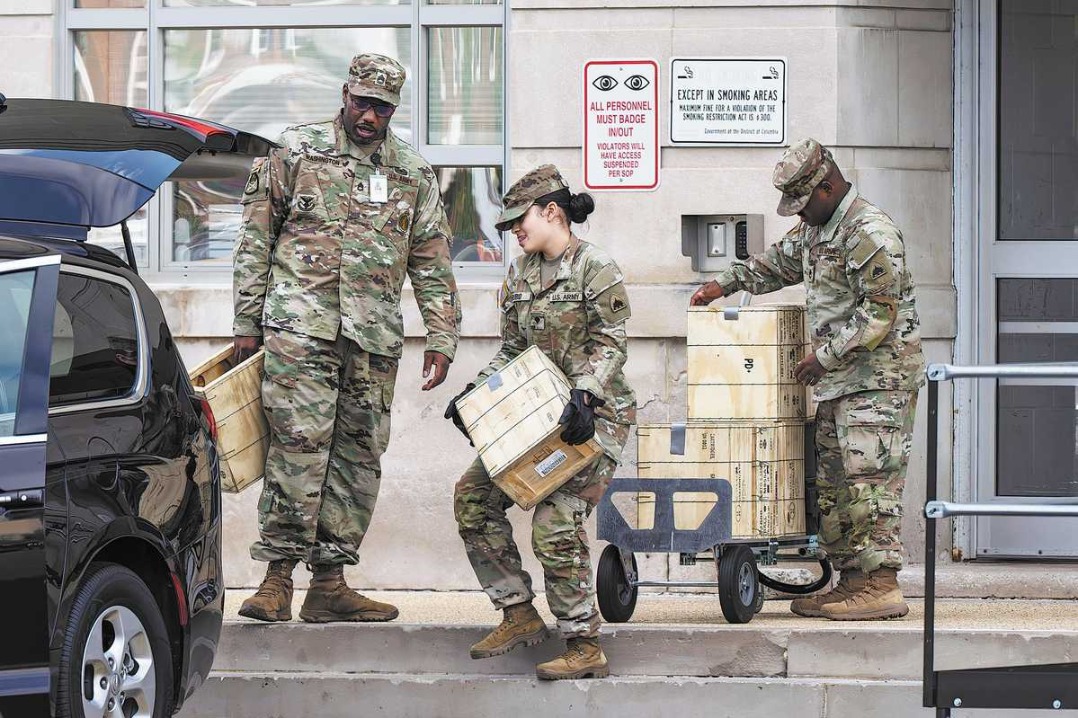US stocks decline on continued uncertainty

US stocks fell nearly 900 points on the open Wednesday as Wall Street prepared for more bad economic news stemming from the coronavirus outbreak.
Job statistics prepared by ADP and Moody's Analytics showed layoffs increased early last month before the full impact of the pandemic was felt. Figures to be released Thursday by the Labor Department are expected to be much higher.
In early trading, the Dow Jones Industrial Average regained some of its initial losses, but still traded down 3.23 percent at 707.49. The S&P 500 fell 87.18 points, or 3.37 percent. The Nasdaq Composite dropped 225.34 points, of 2.90 percent.
The 30-stock Dow lost about 23 percent of its value in the first three months of 2020, it's worst first-quarter performance in history. The S&P 500 declined about 20 percent and the Nasdaq Composite of 2,500 stocks fell about 14 percent.
"We're slowly peering through the fog and trying to see how bad things will become, but essentially we are flying blind," Peter Dixon, a senior economist at Commerzbank, told The Wall Street Journal. "It's very clear this is going to be the biggest sudden stop in measured history – the economy is just going to hit the buffers."
Investors turned to bonds amid the uncertainty. The 10-year US Treasury note slid to 0.603 percent from 0.691 percent Tuesday. Bond prices and yields move in opposite directions as yields dip, prices rise.
In an investor webcast Tuesday, DoubleLine Capital CEO Jeffrey Gundlalch said he expects uncertainty created by the coronavirus will take the market lower in April. "The low we hit in the middle of March, I would bet that low will get taken out," he said.
West Texas Intermediate Crude oil futures, the gauge of US prices, slid 0.65 percent to $20.35 a barrel. Brent crude, the worldwide benchmark, declined 4.59 percent to $25.14. The price of oil is viewed as an indicator of future economic activity.
BP said it plans to cut investment about 25 percent this year as oil and gas production decline. The company plans to take a $1 billion charge due to the coronavirus pandemic. In early trading, BP's stock rose 3.44 percent in early trading.
Net job losses totaled 27,000 jobs through March 12 prior to the big hit the economy took from the coronavirus clampdown, ADP and Moody's Analytics said in a report issued Wednesday.
In February, ADP reported a gain of 179,000 jobs based on a sample of employers, revised down from 183,000.
Weekly initial jobless claims as reported by the US Labor Department's household survey are the only gauge of unemployment in something approaching real time. Last week, first-time claims totaled about 3.3 million. Analysts expect the number of unemployed will increase by another 3.1 million when the Labor Department issues its next report Thursday.
The St. Louis Federal Reserve believes as many as 47 million people will lose their jobs as the economy stalls due to the coronavirus. That would push the unemployment rate to 32 percent from 3.5 percent prior to the pandemic. Most forecasts are not that severe.































